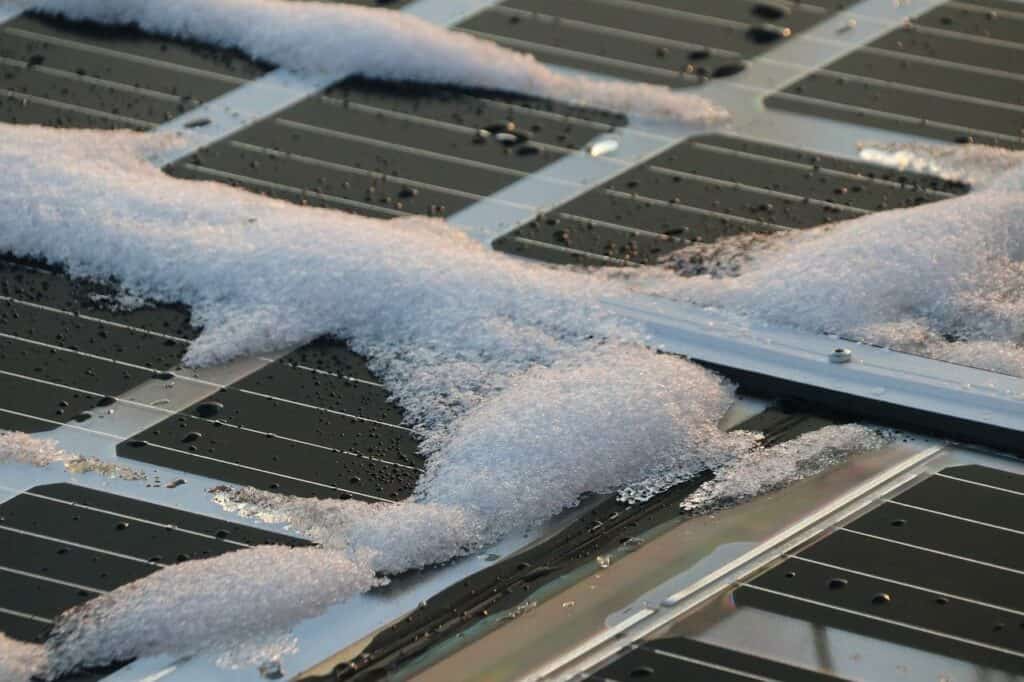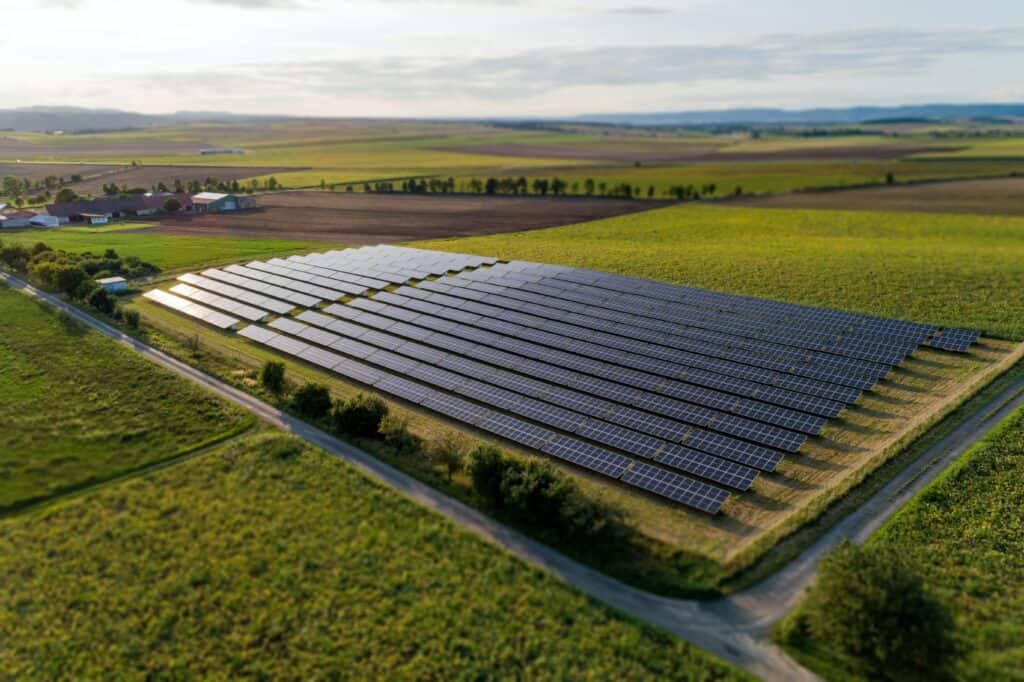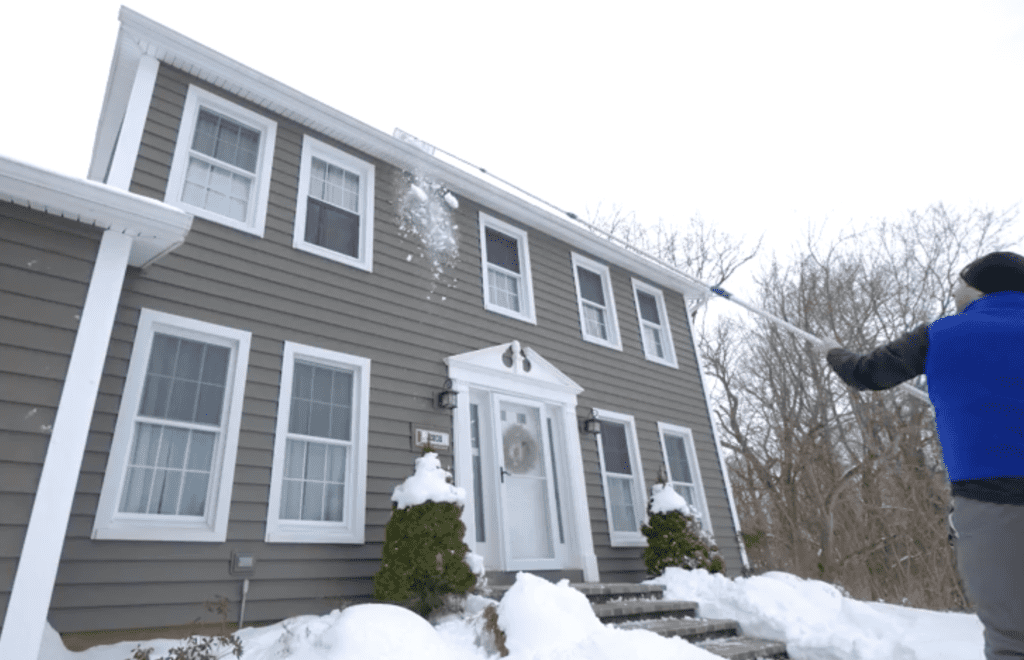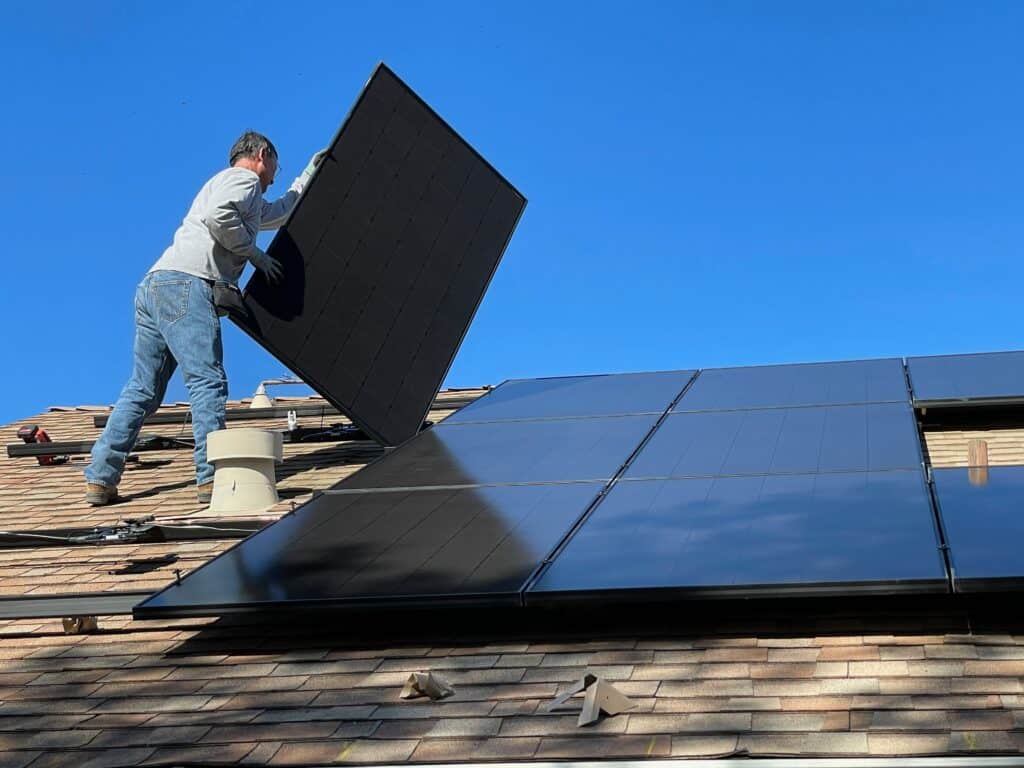The short answer is yes, they will work fine. Solar panels will generate plenty of electricity in the winter. There will be a drop in power production during snow storms and after. If the snow is heavy and acmmulates, then there will be a longer delay of a few days until return to peak energy production. In this post, we will take a look at the topic and try to answer that question once and for all.

Solar Panels Work About Twice As Well In Summer Compared To Winter
Solar panels are a popular choice for homeowners looking to reduce their energy bills and their carbon footprint. However, many people don’t realize that the output of solar panels differs depending on the time of year. The amount of electricity produced by solar panels also depends on their angle toward the sun. If they are installed at a steeper angle, they will be more effective in the winter, when the sun is lower in the sky.
Conversely, if they are at a shallower tilt angle, they will be more effective in the summer. As a result, it’s important to consider the local climate when choosing an installation angle for solar panels. By understanding how different seasons affect solar panel output, homeowners can maximize their investment and reduce their energy bills year-round. Your solar installer will be able to determine this for you unless you’re a DIYer.
We have compiled a table of average solar radiation and energy production. In winter, solar radiation drops by half so your electricity output will also be cut by half. For comparison, an idealized output of 20 panels in summer at 1.6 sq-m each generates about 1000 kWh. In the winter, that would fall to 500 kWh or less.
Winter Time Brings Extra Challenges
The debate of whether solar panels are more effective during the summer or winter has been going on for years. Some say that snow and solar panels don’t mix, while others claim that winter is the best time to harness the power of the sun.
Summer has its advantages when it comes to solar power. The days are longer, which means that there is more time for the sun to shine. In addition, the heat of summer can help to increase the output of solar panels. During this time, if you generate extra energy you feed it back to the grid and get paid. This is called net metering.
Winter has its disadvantages for sure. The days are short and the sun becomes low in the sky. Further, snow accumulates on solar panels. If this snow doesn’t melt, it could become ice. During these times you’re probably pretty happy that you got paid for the extra electricity you generated in the summer and fed back into the grid.

Solar Panels: Designed So Accumulated Snow Falls Off, Or Melts Over Days
There are two factors that help.
The roof is sloped so designed to let snow fall off. Light snow coupled with a heated house has the effect of letting the snow become unstuck and slide off. Take a look at the first image above. The snow is rapidly melting. When the snow gets heavier, the process will take longer. Because solar panels are dark, any unexposed surface will absorb heat. This has the effect of spreading the heat throughout the panels. Over a short time, that heat will increase the melting of the snow. How long will that take? Good question. If the snow is particularly heavy it will take a few days. During those days the electricity output will be diminished.
In Fact, Melting Snow Increases Solar Panel Efficiency
A useful effect of melting snow on solar panels is that it can help to increase the efficiency of the panels. As the snow melts, it clears away any dust or debris that may have been blocking the sun’s rays. This allows more sun to reach the panels, increasing the amount of energy they can produce.
You Don’t Need To Remove The Snow But If You Want To …
If you don’t want to wait a few days, you have an option to remove the snow. Getting on top of the roof is dangerous and we recommend you get a professional if you need to. The safest way to do this is with a roof rake. A telescoping roof rake will extend up to 25-30 ft. At that length, you reach the roof of a 2 story house. By moving it forward and backward the rake will pull the snow down. It’s not easy work!

Be sure to use a non scratching rake. The last you want to do is scrape the delicate panel surface with a metal rake. Be careful not to use anything sharp as this could damage the solar panel.
We don’t recommend you cover your panels with anything to protect them. I’ve never seen a transparent cover. Perhaps the only reason would be if you live in an area with a high frequency of damaging events like hail storms. Then yes, a solar panel cover will help to protect your investment and keep your solar panels in snow working efficiently. With proper maintenance, solar panels can continue to function even in the coldest weather conditions.

Additional Problems Associated With Snow
Heavy snow can weigh down solar panels, causing them to bend or break. Heavy snow can also cause roof damage, as the extra weight can put strain on the roof structure. This can be dangerous if the roof isn’t designed to handle the additional weight.
Ice can form on the panels, blocking the sun’s rays and reducing the amount of energy produced. Ice buildup can also cause the panels to become brittle, which can cause them to break if the ice shifts or the panels are bumped. This can lead to costly repairs.
Conclusion
Solar panels are a great way to save money on your energy bill and help the environment. Don’t worry too much about the snow. The solar panels will be able to withstand the cold weather and keep your home warm all winter long. In the US, regional test centers continue to carry out scientific tests about the effects of snow on the panels. These centers generally consist of a variety of different test beds that can be used to simulate different conditions, such as temperature, humidity, and wind speed. Using these test beds, companies can get a better idea of how their solar panels will perform in different environments. The data collected from these tests can then be used to develop more efficient and cost-effective solar panel technologies.
